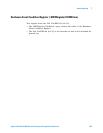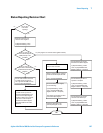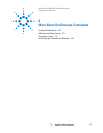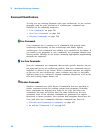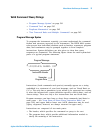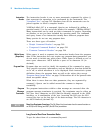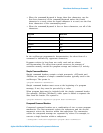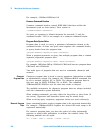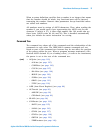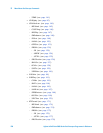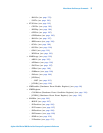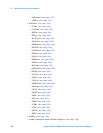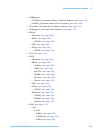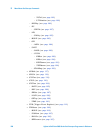
More About Oscilloscope Commands 8
Agilent InfiniiVision 5000 Series Oscilloscopes Programmer's Reference 533
• When the command/keyword is longer than four characters, use the
first four characters of the command/keyword unless the fourth
character is a vowel; when the fourth character is a vowel, use the first
three characters of the command/keyword.
• When the command/keyword is four or fewer characters, use all of the
characters.
In the oscilloscope programmer's documentation, the short form of a
command is indicated by uppercase characters.
Programs written in long form are easily read and are almost
self- documenting. The short form syntax conserves the amount of
controller memory needed for program storage and reduces I/O activity.
Simple Command Headers
Simple command headers contain a single mnemonic. :AUToscale and
:DIGitize are examples of simple command headers typically used in the
oscilloscope. The syntax is:
<program mnemonic><terminator>
Simple command headers must occur at the beginning of a program
message; if not, they must be preceded by a colon.
When program data must be included with the simple command header
(for example, :DIGitize CHANnel1), white space is added to separate the
data from the header. The syntax is:
<program mnemonic><separator><program data><terminator>
Compound Command Headers
Compound command headers are a combination of two or more program
mnemonics. The first mnemonic selects the subsystem, and the second
mnemonic selects the function within that subsystem. The mnemonics
within the compound message are separated by colons. For example, to
execute a single function within a subsystem:
:<subsystem>:<function><separator><program data><terminator>
Long Form Short form
RANGe RANG
PATTern PATT
TIMebase TIM
DELay DEL
TYPE TYPE



